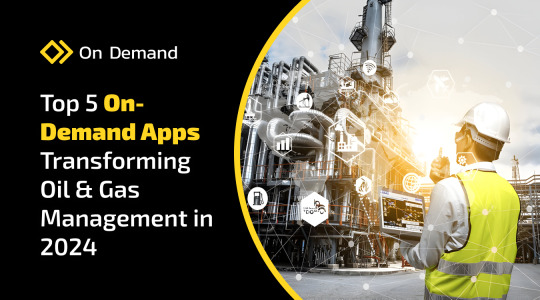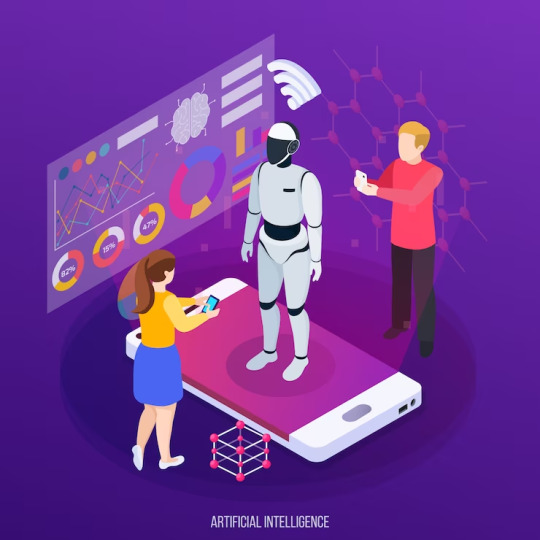#SmartEnergyManagement
Explore tagged Tumblr posts
Text
How Smart Energy Management is Powering the Future of Industries
Smart Energy Management solutions are not just changing the game, they're putting the power back in your hands. By harnessing advanced data analytics, automation, and predictive algorithms, these cutting-edge systems give you the control to monitor, analyze, and optimize your energy use in real-time. Whether you're a small-scale operation or a large corporation, these solutions can be tailored to your needs. By integrating renewable energy sources and dynamically managing energy demands, industries gain significant cost savings, enhanced operational efficiency, and a reduced carbon footprint, putting you in control of your energy future.
These solutions are not just about your industry. They're about shaping a greener, more efficient future for our planet. By participating in demand response programs and adjusting energy usage based on grid conditions, industries can unlock further economic and environmental advantages. Smart Energy Management is a cornerstone of sustainable industrial growth on a global scale, making you feel part of a more significant, sustainable movement that is shaping the future of our planet.
Business Case for Smart Energy Management in Industries

1. Manufacturing
Intelligent energy management optimizes motor control, reduces idle HVAC usage through occupancy-based adjustments, and implements energy-efficient lighting solutions. These measures significantly cut energy costs while improving operational productivity and sustainability.
2. Data Centers
Dynamic power management adjusts server activity to match real-time workloads, while advanced cooling strategies reduce energy consumption in high-demand environments. These solutions ensure efficient operations and minimize the environmental impact of data centers.
3. Oil and Gas
Intelligent energy systems monitor drilling energy use, optimize pipeline flow, and integrate renewables like solar and wind. These innovations enhance efficiency, lower operational costs, and support sustainability in the energy sector.
Advantages of Smart Energy Management Solutions in Industries

1. Integrate Green Energy
As part of our Smart Energy Management solutions, intelligent energy management facilitates the seamless integration of renewable energy sources such as solar and wind into industrial operations. This process involves [specific steps or technologies, such as the installation of solar panels on rooftops and the setup of wind turbines in suitable locations], which reduces reliance on fossil fuels, lowers carbon emissions, and supports sustainability goals, making industries more resilient to energy market fluctuations.
2. Lower Operational Expense
Our innovative energy solutions are not just about sustainability. They're about improving your bottom line. By optimizing energy consumption through real-time monitoring and intelligent automation, industries can significantly reduce operational costs. You can streamline energy use during peak hours and minimize waste, improving financial performance and providing security and confidence in your investment.
3. Optimize Asset Maintenance
Advanced analytics in intelligent energy systems enable predictive maintenance of critical assets. This process involves [specific steps or technologies], which reduces unexpected downtime and repair costs. It ensures equipment operates efficiently, prolonging its lifespan while maintaining smooth production workflows.
4. Regulatory Compliance
Innovative energy solutions help industries comply with stringent energy and environmental regulations by tracking usage and emissions data. Automated reporting, which [explains how it works and its benefits], ensures accurate compliance documentation, reduces penalties, and enhances corporate reputation.
5. Enhanced Energy Monitoring
Real-time energy monitoring provides actionable insights into usage patterns, enabling industries to identify inefficiencies and implement corrective measures. This level of visibility drives informed decision-making and fosters a culture of energy efficiency.
Why Partner with Web Synergies?
At Web Synergies, we combine cutting-edge technology with industry expertise to deliver tailored solutions that drive transformation and success. Here's why partnering with us is the right choice for your business:
Comprehensive Solutions:
From Smart Energy Management to Digital Twins and Integrated Suite, we offer a full spectrum of IT services designed to optimize operations, reduce costs, and enhance sustainability.
Proven Expertise:
With decades of experience across diverse industries, we understand businesses' unique challenges and provide customized strategies to meet their goals.
Sustainability Focus:
Our solutions are designed to support your journey towards net-zero emissions, enabling more imaginative resource utilization and reduced environmental impact.
Global Reach, Local Touch:
Operating across Singapore, India, Japan, UAE, Vietnam, Malaysia, and the USA, we combine global best practices with regional insights to deliver exceptional value.
Customer-Centric Approach:
We are committed to building long-term partnerships through consistent innovation, seamless implementation, and unmatched support tailored to your business needs.
Partner with Web Synergies to empower your business with solutions that drive innovation, efficiency, and sustainable growth.
#SmartEnergyManagement#IndustrialEfficiency#GreenTechnology#EnergyInnovation#SustainableIndustries#EnergyOptimisation#SmartManufacturing#IndustrialAutomation#RenewableIntegration#FutureOfEnergy#SmartGridTechnology#CarbonFootprintReduction#DigitalTransformation#Industry40
0 notes
Text
Cogeneration Equipment Market to Grow Owing to Rising Energy Efficiency
The cogeneration equipment market is witnessing unprecedented momentum, driven by the demand for highly efficient power generation systems that simultaneously produce electricity and heat. Cogeneration systems, also known as combined heat and power (CHP) units, integrate prime movers such as gas turbines, reciprocating engines, and steam turbines with heat recovery technologies to deliver significant energy savings. These solutions offer advantages including reduced fuel consumption, lower greenhouse gas emissions, and enhanced reliability for industrial, commercial, and residential applications. As energy-intensive industries seek to optimize operational costs, the adoption of cogeneration units provides a scalable and flexible approach to meet both thermal and electrical loads.
Get More Insights on Cogeneration Equipment Market https://www.patreon.com/posts/cogeneration-to-129900271

#CogenerationEquipmentMarket#CombinedHeatAndPower#SmartEnergyManagement#EnergyEfficiencySolutions#CoherentMarketInsights
0 notes
Text
Top 5 On-Demand Apps Revolutionizing Oil & Gas Management

On-demand apps are reshaping industries by introducing efficiency and convenience through automation and advanced analytics. The oil and gas sector, traditionally rooted in complex operations, is no exception. Leveraging on-demand app development can streamline operations, improve safety, and enhance decision-making, paving the way for a more sustainable future. Here’s a look at five transformative apps that are setting new benchmarks in oil and gas management.
1. Fuel Delivery App: FuelBuddy
FuelBuddy offers a seamless way to manage fuel shortages with doorstep or on-road delivery services.
Key Features:
Real-Time Tracking: Monitor fuel deliveries with GPS-enabled tracking.
Automated Scheduling: Ensure timely tank refills with scheduled deliveries.
Data Analytics: Optimize fuel usage through actionable insights.
Benefits:FuelBuddy eliminates disruptions caused by fuel shortages, optimizes fuel usage, and reduces risks associated with fuel handling. Businesses can leverage a custom on-demand fuel delivery app to enhance operations and customer satisfaction.
2. Safety Management App: SafetyCulture
Promoting a safe work environment is critical for oil and gas operations. SafetyCulture simplifies compliance and inspection tasks.
Key Features:
Customizable Checklists: Tailor checklists for regulatory requirements.
Incident Reporting: Efficiently document and resolve incidents.
Document Management: Store safety records securely in one place.
Benefits:The app ensures compliance, reduces penalties, and fosters a safety-first culture, boosting employee morale and operational reliability.
3. Asset Management App: UpKeep
UpKeep focuses on asset maintenance, ensuring optimal resource utilization.
Key Features:
Maintenance Scheduling: Avoid equipment downtime with proactive maintenance.
Work Order Management: Assign and track tasks effortlessly.
Inventory Management: Manage spare parts efficiently.
Benefits:UpKeep minimizes equipment failures and enhances productivity, allowing businesses to focus on strategic growth. Developing a custom on-demand fuel delivery app can further integrate asset management for comprehensive solutions.
4. Project Management App: Procore
Procore simplifies the complexities of managing oil and gas projects.
Key Features:
Project Planning: Define clear goals and timelines.
Collaboration Tools: Enhance teamwork with real-time communication.
Budget Tracking: Monitor expenses to avoid overruns.
Benefits:Procore improves project efficiency and stakeholder confidence through transparent reporting and meticulous planning.
5. Data Analytics App: Power BI
Power BI transforms raw data into actionable insights for strategic decisions.
Key Features:
Data Visualization: Create intuitive reports and dashboards.
Real-Time Analytics: Make informed decisions quickly.
Integration: Combine data from multiple sources for holistic analysis.
Benefits:With Power BI, businesses can optimize processes, reduce costs, and gain a competitive edge. Harnessing on-demand app development further enhances data-driven decision-making capabilities.
Conclusion:Adopting on-demand apps like FuelBuddy, SafetyCulture, UpKeep, Procore, and Power BI is essential for thriving in the evolving oil and gas industry. By integrating these tools into daily operations, businesses can enhance efficiency, safety, and sustainability, ensuring long-term growth and customer satisfaction.
Read more : Transforming Operations with On-Demand Oil & Gas Delivery Apps
0 notes
Text
Engineering Applications of Artificial Intelligence

The marriage of engineering and artificial intelligence (AI) has given rise to a new era of innovation, transforming industries and revolutionizing the way problems are solved. The engineering landscape, once dominated by traditional methods, is now being reshaped by the remarkable capabilities of AI.
AI's applications in engineering span a vast spectrum of industries and disciplines. In manufacturing, AI-driven robots and automation systems are streamlining production processes, enhancing precision, and minimizing human error. In product design, AI algorithms analyze vast datasets to uncover insights that drive the creation of more efficient, sustainable, and user-centric solutions.
One of the standout applications is predictive maintenance. By leveraging AI's ability to process and learn from large volumes of data, engineers can predict when machinery and equipment are likely to fail, allowing for preemptive maintenance that minimizes downtime and operational disruptions. This not only optimizes productivity but also extends the lifespan of expensive assets.
The construction industry is undergoing a transformation as well, with AI facilitating smarter project planning, risk assessment, and resource allocation. Computer vision, a subset of AI, enables the analysis of construction sites for safety compliance and progress tracking. This technology is also being used to design structures optimized for energy efficiency and structural integrity.
The integration of AI in engineering also extends to energy management and sustainability efforts. Smart grids and energy systems use AI algorithms to balance supply and demand, optimizing energy distribution and reducing waste. This is crucial in the transition to a greener future, where AI-driven insights are driving the adoption of renewable energy sources and the reduction of carbon footprints.
However, the full potential of AI in engineering is still being explored, and challenges remain. Ensuring data privacy, addressing bias in algorithms, and managing the ethical implications of AI are ongoing concerns. Moreover, the need for a skilled workforce adept in both engineering and AI is growing.
Conclusion
In essence, the engineering applications of artificial intelligence are reshaping industries and propelling us toward a more efficient, sustainable, and innovative future. As engineers continue to collaborate with AI, the possibilities are boundless, offering solutions to complex challenges and transforming the way we interact with the world around us.
#AIEngineering#InnovationRevolution#SmartEngineering#AIinIndustry#TechTransformations#AIandInnovation#EngineeringEvolution#AIProgress#SustainableEngineering#FutureofEngineering#AIAdvancements#TechInnovation#EngineeringInnovations#AIinManufacturing#SmartConstruction#GreenTech#AIforSustainability#EngineeringSolutions#AIinDesign#SmartEnergyManagement
0 notes
Text









Thank you to everyone who visited our stall at the 17th Urban Mobility India Conference & Expo 2024! It was a pleasure to connect, share our journey, and showcase our innovations in urbanization solutions. Over the three days, we were overwhelmed by your interest and inquiries, reaffirming our commitment to support India's urban growth. Looking forward to collaborating soon to drive our nation forward together!
For Queries please connect: 📞 +91 95555 500 300 🔗 neptuneindia.com 📩 [email protected] . . .
UrbanMobilityIndia #SmartEnergy #PowerQuality #Innovation #NeptuneIndia #EnergyInnovation #FutureOfEnergy #SmartEnergyManagement #EMS #PowerDistribution #SecurityAndAccess #Energy #Power #Expo #Conference #Exhibition #Gandhinagar #Gujrat #Business #Partnership
1 note
·
View note
Text
Neptune in #ElAsia_2019
Neptune in ElAsia_2019 at BIEC, Bangalore, India

#SmartEnergyManagement #PowerDistribution #PowerQuality #Electrical_Component #Electrical_Panel #PowerQuality #MeteringSystem https://www.neptuneindia.com
4 notes
·
View notes
Text
Guidance: Non-domestic Smart Energy Management Innovation Competition has been published on Energy Solutions News
New Post has been published on https://www.energybrokers.co.uk/news/beis/guidance-non-domestic-smart-energy-management-innovation-competition-2
Guidance: Non-domestic Smart Energy Management Innovation Competition
The government has committed up to £8.8 million to develop innovative approaches to energy management using smart meter data, tailored to the needs of smaller non-domestic sites.
The Non-Domestic Smart Energy Management Innovation Competition aims to drive innovation in the energy services market in 3 priority non-domestic sectors:
hospitality
retail
schools
The competition will help such non-domestic organisations cut their energy costs and be more energy efficient, enabling them to boost productivity and contribute to UK emissions reduction targets. It will also develop and strengthen the market for energy management products and services for smaller non-domestic sites, including both independent businesses and chains.
Nine projects distributed across these 3 sectors, were selected to receive initial Phase 1 funding to develop innovative energy management solutions using smart meter data. The Pilio project did not progress beyond Phase 1, and Phase 1 of the Toshiba project was extended for completion in early 2019.
During Phase 2 (October 2018 to January 2019), 7 projects:
ANDtr
Considerate Hoteliers
Element Energy
Hildebrand
Hoare Lea
Samsung
Transition Bath
undertook “real-world” initial feasibility testing of the solutions they developed in Phase 1. In February 2019, all the 7 Phase 2 projects successfully progressed to Phase 3 which will consist of a wider roll out and further testing of the tools, as well as developing and testing supporting complementary interventions such as energy management and engagement services. Phase 3 is due to complete in January 2020.
Additional information about these seven projects, including the latest project summaries, short Q&As with the competition partners and case studies of initial user reactions to the innovations being tested, can now be found on this page.
In parallel to these projects, the ongoing Research and Evaluation Programme (REP) aims to generate a wide-ranging evidence base to determine ‘what works’ in terms of non-domestic engagement with smart meter data, specifying how and why. The infographic above and sections below provide more details, including feedback from the recent networking event.
Networking event – November 2018
As part of the Carbon Trust-led REP coordination activities, a networking event was held on 8 November 2018, bringing together all Phase 1 projects and a wide range of industry representatives from across sectors – see networking event slides above. The event aimed to support the identification of pilot sites and routes to commercialisation of the innovative solutions.
Competition Details
Details about the competition are set out in the original Invitation to Tender.
For more information, please email [email protected].
Research and Evaluation Programme
BEIS has contracted Ipsos MORI to lead a £1.5 million research and evaluation programme that will run alongside the NDSEMIC competition.
The research & evaluation programme consists of both traditional evaluation activities and a novel ‘Action Research’ approach. It aims to generate a wide-ranging evidence base to determine ‘what works’ in terms of non-domestic engagement with smart meter data, specifying how and why.
The ‘evaluation’ strand will be led by Ipsos MORI, who is responsible for the overall delivery of the research contract. This element will seek to measure the impacts and effectiveness of competition projects in shifting non-domestic behaviours and reducing energy consumption, generating lessons at project, sector and competition level. It will also consider the effectiveness of the implementation of the competition and how this relates to the achievement of objectives.
The novel ‘Action Research’ component, led by the Carbon Trust, aims to maximise the success of individual projects by putting the end-user at the heart of the competition, using emerging evidence to iteratively ‘feedback’ into product/service development. This will draw upon Carbon Trust’s industry expertise to support areas including user testing, market development strategies and consumer research approaches to secure intended project benefits.
Ipsos MORI and the Carbon Trust will also support ‘coordination activities’ for the competition, bringing together industry-wide experts and competition partners to share best practice and cross-cutting evidence.
BEIS will use outputs from the research & evaluation programme to inform approaches to non-domestic smart meter engagement and in due course will publish findings for wider dissemination.
Information day
The accompanying slidepack was presented at an Information event held on 30 November 2017. It covers:
An overview of the competition context and objectives
A summary of non-domestic sector research
Insights from specialists in retail, hospitality and schools
An overview of smart meter data
Details of the competition design and process
Smart metering in non-domestic premises: early research findings
BEIS commissioned research that sought to understand how smaller non-domestic organisations use energy and manage energy consumption, including how they use smart meter data.
The study used a cluster (grouping) based method, which classified smaller non-domestic organisations by how they use energy. It identified 3 high-impact sectors that offer material energy savings: retail, hospitality and schools. The research also showed that smart meter data has the potential to prompt organisations into taking action provided they know how to interpret it within the context of their own operations and a cost effective solution is available. In addition it highlighted the importance of the way organisations are engaged prior to, during and after smart meter installation.
Smart metering in non-domestic premises: early research findings
The Research Executive Summary and Overview Report have direct relevance to this competition.
0 notes
Text
Smart City Technologies: Revolutionizing Urban Living in the 21st Century
In recent years, the concept of smart cities has gained significant traction, promising to revolutionize urban living through the integration of cutting-edge technologies. These innovations aim to enhance the quality of life for city dwellers, optimize resource management, and create sustainable, efficient, and connected urban environments. Smart City Technologies - https://jordancreeed.hashnode.dev/smart-city-technologies-transforming-urban-landscapes-for-a-sustainable-future
0 notes
Text
Guidance: Non-domestic Smart Energy Management Innovation Competition has been published on Energy Solutions News
New Post has been published on http://www.energybrokers.co.uk/news/beis/guidance-non-domestic-smart-energy-management-innovation-competition
Guidance: Non-domestic Smart Energy Management Innovation Competition
The government is planning to commit up to £8.8 million to develop innovative approaches to energy management using smart meter data, tailored to the needs of smaller non-domestic sites.
The Non-Domestic Smart Energy Management Innovation Competition will aim to drive innovation in the energy services market in 3 priority non-domestic sectors:
hospitality
retail
and schools.
The competition will help such non-domestic organisations cut their energy costs and be more energy efficient, enabling them to boost productivity and contribute to UK emissions reduction targets. It will also develop and strengthen the market for energy management products and services for smaller non-domestic sites, including both independent businesses and chains.
Up to 9 projects, distributed across these 3 sectors, will be selected to receive initial funding to develop innovative energy management solutions using smart meter data.
Competition Details
Details about the competition are set out in the Competition Briefing note.
For more information, please email [email protected].
Smart metering in non-domestic premises: early research findings
BEIS commissioned research that sought to understand how smaller non-domestic organisations use energy and manage energy consumption, including how they use smart meter data.
The study used a cluster (grouping) based method, which classified smaller non-domestic organisations by how they use energy. It identified 3 high-impact sectors that offer material energy savings: retail, hospitality and schools. The research also showed that smart meter data has the potential to prompt organisations into taking action provided they know how to interpret it within the context of their own operations and a cost effective solution is available. In addition it highlighted the importance of the way organisations are engaged prior to, during and after smart meter installation.
Smart metering in non-domestic premises: early research findings
The Research Executive Summary and Overview Report have direct relevance to this competition.
0 notes